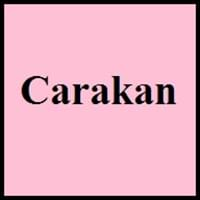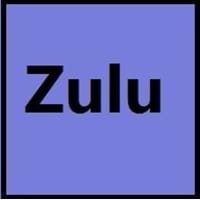Javanese and Zulu
Countries
Indonesia
South Africa
National Language
Indonesia
South Africa
Second Language
Not spoken in any of the countries
Botswana, Lesotho, Malawi, Mozambique, Swaziland, Zimbabwe
Speaking Continents
Asia
Africa
Minority Language
Malaysia, Netherlands, Singapore, Suriname
Not spoken in any of the countries
Regulated By
Not Available
Pan South African Language Board
Interesting Facts
- The Javanese group is the largest ethnic group in Indonesian.
- The earliest writing in Javanese dates from the 4th Century AD, at that time Javanese was written with the Pallava alphabet.
- The meaning of word "Zulu" means "Sky"and Zulu was the name of the ancestor who founded the Zulu royal line in about 1670.
- Zulu language has many loanwords borrowed from Afrikaans and English Languages.
Similar To
Madurese, Sundanese and Balinese Languages
Xhosa Language
Derived From
Not Available
Not Available
Alphabets in
Javanese-Alphabets.jpg#200
Zulu-Alphabets.jpg#200
Scripts
Arabic, Javanese, Latin
Latin
Writing Direction
Left-To-Right, Horizontal
Not Available
Thank You
matur nuwun
Ngiyabonga
How Are You?
piye kabare?
unjani
Good Night
wengi sing apik
okuhle ebusuku
Good Evening
Sugeng sọnten
okuhle kusihlwa
Good Afternoon
Sugeng siang
okuhle ntambama
Good Morning
Sugeng énjing
okuhle ekuseni
Please
Not Available
Ngiyacela
Sorry
Nyuwun pangapunten
Ngiyaxolisa
Bye
Kepanggih malih benjang
bye
I Love You
Kula tresna panjengan
Ngiyakuthanda wena
Excuse Me
Nuwun séwu
Uxolo
Dialect 1
Pekalongan
Qwabe
Where They Speak
Indonesia
Gabon, South Africa
Dialect 2
Cirebon
central KwaZulu-Natal Zulu
Where They Speak
Indonesia
Georgia, South Africa
Where They Speak
Indonesia
Zimbabwe
Second Language Speakers
Not Available
Native Name
basa Jawa
isiZulu
Alternative Names
Djawa, Jawa
Isizulu, Zunda
French Name
javanais
zoulou
German Name
Javanisch
Zulu-Sprache
Pronunciation
Not Available
Not Available
Ethnicity
Javanese (Mataram, Osing, Tenggerese, Boyanese, Samin, Cirebonese, Banyumasan, etc)
Zulu people
Language Family
Austronesian Family
Niger-Congo Family
Subgroup
Indonesian
Benue-Congo
Branch
Not Available
Beatu
Early Forms
No early forms
urban Zulu
Standard Forms
Javanese
Deep Zulu
Signed Forms
Not Available
Not Available
Scope
Individual
Individual
ISO 639 6
Not Available
Not Available
Glottocode
java1253
zulu1248
Linguasphere
No data available
99-AUT-fg
Language Type
Living
Living
Language Linguistic Typology
Subject-Verb-Object
Subject-Verb-Object
Language Morphological Typology
Agglutinative
Not Available
All Javanese and Zulu Dialects
Most languages have dialects where each dialect differ from other dialect with respect to grammar and vocabulary. Here you will get to know all Javanese and Zulu dialects. Various dialects of Javanese and Zulu language differ in their pronunciations and words. Dialects of Javanese are spoken in different Javanese Speaking Countries whereas Zulu Dialects are spoken in different Zulu speaking countries. Also the number of people speaking Javanese vs Zulu Dialects varies from few thousands to many millions. Some of the Javanese dialects include: Pekalongan, Cirebon. Zulu dialects include: Qwabe , central KwaZulu-Natal Zulu. Also learn about dialects in South American Languages and North American Languages.
Javanese and Zulu Speaking population
Javanese and Zulu speaking population is one of the factors based on which Javanese and Zulu languages can be compared. The total count of Javanese and Zulu Speaking population in percentage is also given. The percentage of people speaking Javanese language is 1.25 % whereas the percentage of people speaking Zulu language is 0.16 %. When we compare the speaking population of any two languages we get to know which of two languages is more popular. Find more details about how many people speak Javanese and Zulu on Javanese vs Zulu where you will get native speakers, speaking population in percentage and native names.
Javanese and Zulu Language Codes
Javanese and Zulu language codes are used in those applications where using language names are tedious. Javanese and Zulu Language Codes include all the international language codes, glottocodes and linguasphere.





